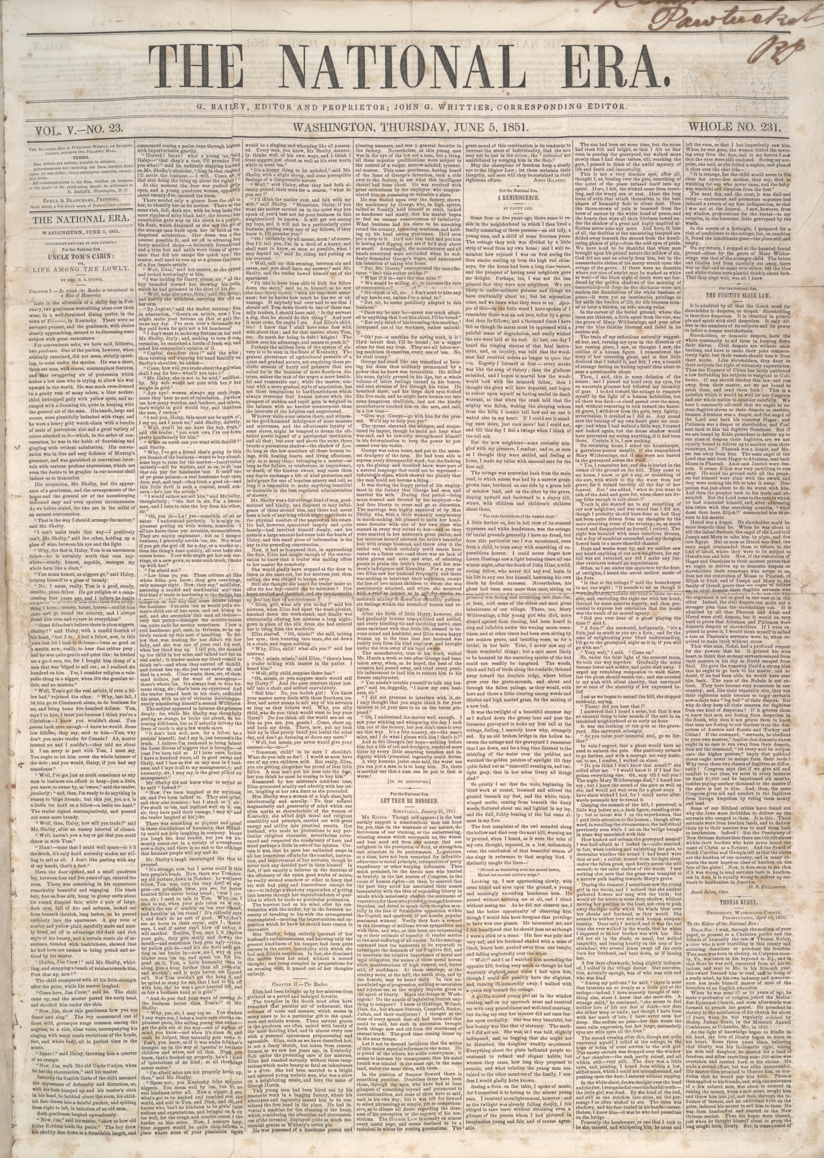
Initially published in the form of weekly installments in the abolitionist periodical The National Era between June 5, 1851 and April 1, 1852 before its publication as a two-volume book, Harriet Beecher Stowe's Uncle Tom's Cabin was a landmark anti-slavery text of the American Antebellum period. The sentimental novel, which interweaves Stowe's Christian beliefs with the violent realities of the slavery industry, was inspired not only by the 1850 passage of the Fugitive Slave Act, which required that all escaped slaves—even those in free states—be returned to their enslavers, but also the real-life narratives of those who had been formerly enslaved, such as Josiah Henson and Phebe Ann Jacobs. Uncle Tom's Cabin is often credited with fueling the abolitionist cause in the decade preceding the Civil War, with President Abraham Lincoln himself quoted as saying, upon meeting Stowe, "So this is the little lady who started this great war." At the same time, it reinforced harmful stereotypes about Black people, including the creation of the titular "Uncle Tom" literary archetype.
